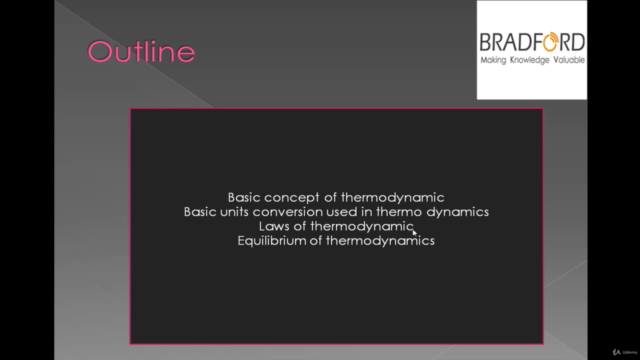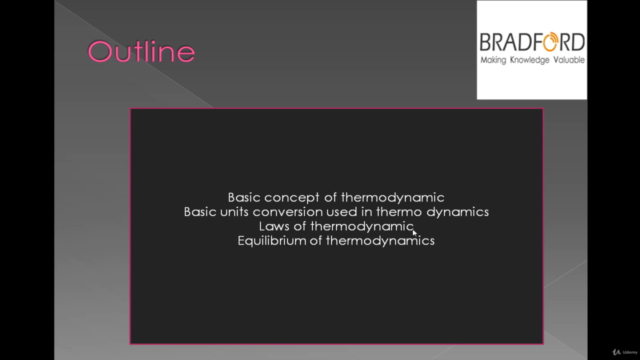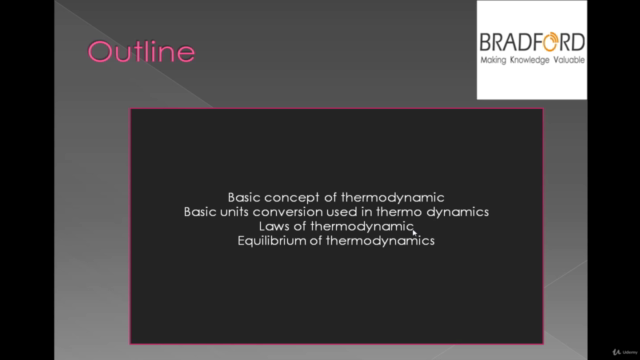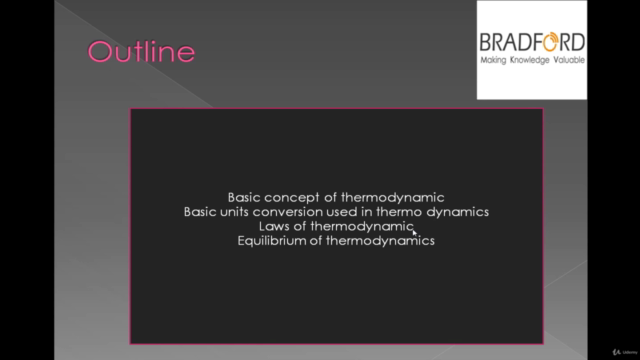الديناميكا الحرارية 1

Why take this course?
🌟 [الديناميكا الحرارية 1 - Course Description] **What is Thermodynamics?_
Thermodynamics, a branch of Applied Mathematics, governs the principles of energy transfer and transformations within systems. It delves into the behavior of heat and its conversion to mechanical work or electrical energy, and vice versa, in various engineering contexts. This course, specifically, focuses on the fundamentals of thermodynamics, providing a comprehensive understanding of the laws and their applications in closed systems, as well as the nuances of heat engines, refrigerators, and heat pumps.
Course Objectives:
- Understand Thermodynamic Principles: Learn the basic concepts behind thermodynamics and how they are applied to real-world engineering systems.
- Master Thermal Terms: Grasp the vocabulary of thermodynamics and understand the significant characteristics used to describe thermal systems.
- Key Concepts: Explore essential elements such as pressure, temperature, volume, internal energy, enthalpy, entropy, and work.
- Fundamental Laws: Study the zeroth, first, and second laws of thermodynamics and their implications for power plants, heat engines, air conditioners, and more.
- Innovative Ideas: Gain insights into the foundational concepts behind thermal machines and refrigerators.
- Skill Development: Develop the necessary skills to perform thermodynamic analysis on a variety of fundamental thermal systems.
🔍 Course Structure: The course is meticulously structured to ensure a clear and comprehensive learning experience. It covers a wide range of topics, including:
- Thermodynamics Basics: Introducing the subject with an overview of its significance in engineering.
- Laws of Thermodynamics: A detailed examination of the zeroth, first, and second laws, and their applications in closed systems.
- Thermophysical Properties: Understanding key properties like pressure, temperature, and specific heat capacities.
- Energy Transfer Analysis: Learning how to calculate heat and work transfer in different systems.
- Engineering Applications: Exploring real-world applications of thermodynamics, including power plants, refrigeration, and heating systems.
- Mathematical Tools: Utilizing mathematical methods to solve problems in thermodynamics.
📈 Course Benefits:
- Practical Understanding: Achieve a deep understanding of the principles behind energy transformation in various forms.
- Problem Solving Skills: Develop the ability to apply thermodynamic principles to solve complex engineering problems.
- Real-World Applications: Learn how thermodynamics is applied in the industries, including power generation, HVAC systems, and refrigeration technologies.
🧐 Who Should Take This Course? This course is perfect for:
- Engineers looking to solidify their understanding of thermal energy systems.
- Students pursuing higher education in engineering, physics, or related fields.
- Professionals seeking to expand their knowledge in thermodynamics for career advancement.
- Anyone interested in the principles and applications of thermodynamics in a practical setting.
Join us on this journey to unlock the mysteries of energy transformation through the fascinating world of Thermodynamics! 🏫✨
Enroll now and elevate your understanding of one of the most fundamental subjects in engineering science! 🚀📚
Course Gallery




Loading charts...